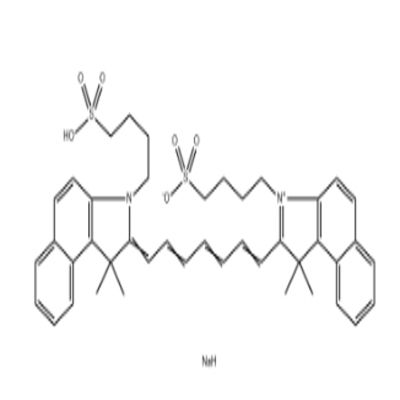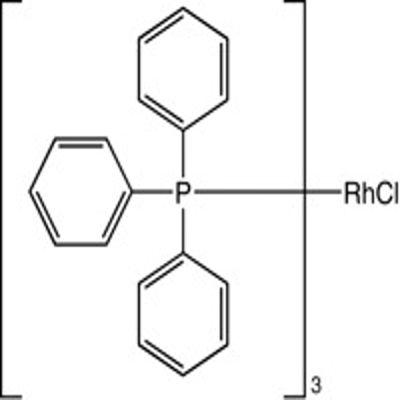-
Categories
-
Pharmaceutical Intermediates
-
Active Pharmaceutical Ingredients
-
Food Additives
- Industrial Coatings
- Agrochemicals
- Dyes and Pigments
- Surfactant
- Flavors and Fragrances
- Chemical Reagents
- Catalyst and Auxiliary
- Natural Products
- Inorganic Chemistry
-
Organic Chemistry
-
Biochemical Engineering
- Analytical Chemistry
- Cosmetic Ingredient
-
Pharmaceutical Intermediates
Promotion
ECHEMI Mall
Wholesale
Weekly Price
Exhibition
News
-
Trade Service
Wen: Yuntian China's liver cancer morbidity and mortality rate in the major cancer diseases are in the forefront, of which more than 90% are liver cell carcinoma, seriously endangering the health of our people.
recent years, the treatment of liver cancer in China has made some progress, but compared with non-small cell lung cancer, blood cancer and other cancers, there is still a huge need for development, let's take a look.
2007, sorafenib's treatment of liver cancer was confirmed by a randomized controlled trial, opening up targeted treatment for liver cancer.
subsequently, targeted liver cancer drugs such as Lenvatinib, Regorafeib and Cabozantinib were approved for the market.
these targeted drugs have made a big breakthrough in the treatment of liver cancer.
at the 2020 meeting of the American Society of Clinical Oncology (ASCO), the original drugs Apatinib and Donafenib were reported to have received excellent data in randomized controlled clinical trials for liver cancer.
Apatinib and Donafenib structured Apatinib is an anti-cancer drug independently developed by Jiangsu Hengrui Pharmaceuticals of China, and the first fully independently developed anti-cancer drug in China, originally listed in 2014 for the treatment of stomach cancer.
recently reported clinical studies have shown that Apatinib significantly prolongs median OS and median PFS in patients compared to placebos in the treatment of advanced liver cancer that fails chemotherapy through sorafininib and/or systemic chemotherapy (8.July VS6.8; April VS1.9).
Donafenib is an anticancer drug developed by Suzhou Zeo Biopharmaceutical Co., Ltd., and recently reported clinical studies have shown that Donafenib significantly prolongs OS in liver cancer patients compared to sorafinie first-line drugs, with a treatment risk ratio of 0.83 and a significantly lower incidence of adverse reactions than Sorafini.
Based on the above two positive clinical results, the 2020 Edition of the Guidelines for the Diagnosis and Treatment of Primary Liver Cancer of the Chinese Society of Anti-Cancer Cancer has included Apatinib and Donafenib in the second- and first-line treatment options for liver cancer.
Second, immunotherapy has revolutionized cancer treatment in recent years, and attempts at immunotherapy (including immuno-checkpoint inhibitors and chisellular antigen-infrastor T lymphocyte immunotherapy) for liver cancer treatment are ongoing.
It is worth mentioning that the clinical results of immuno-checkpoint inhibitors for single-drug treatment of liver cancer have been very limited, including those of Navuliyu monoanti (O) and Pabli-pearl monoanti (K- drugs), in contrast, immuno-checkpoint inhibitors and other drugs have significant effects in the treatment of liver cancer, atezolizumab and bevajuju The bevacizumab combination is the only treatment that has been approved for liver cancer since Solafinib was approved for significant success, with OS and PFS showing significant differences, and Lenvatinib, a combination of Mbolijuda (K-drug), has made significant progress in the treatment of liver cancer and has been recognized by the FDA as a "breakthrough therapy".
In addition to immuno-checkpoint inhibitors, the embedded antigen-liker T lymphocyte immunotherapy (CAR-T) has made some progress in the treatment of liver cancer recently, but CAR-T is currently mainly used for hemologous cancer, and research on the treatment of solid tumors such as liver cancer is slow and in its early stages of development.
in general, some progress has been made in the treatment of liver cancer in recent years, but the therapeutic effect of liver cancer (especially advanced liver cancer) has yet to be improved in terms of indicators such as remission rate and non-progression survival.
immunotherapy and drug-linked treatment programs have brought new hope to the treatment of liver cancer, in the clinical effect has been affirmed, perhaps the future of liver cancer drug development is an important direction, let us look forward to the next breakthrough! References: 1. Donafenib versus sorafenib as first line therapy in advanced hepatocellular carcinoma: An open label,randomized,multicenter phase II /III trial,2020;2. CheckMate 459: A randomized,multi - center phase III study of nivolumab (NIVO) vs sorafenib (SOR) as first - line (1L) treatment in patients(pts) with advanced hepatocellular carcinoma ( aHCC),2019;3. Apatinib as second-line therapy in Chinese patients with advanced hepatocellular carcinoma: A randomized,placebo-controlled,double-blind,phase III study,2020;4. Atezolizumab plus bevacizumab in unresectable hepatocellular carcinoma,2020。







